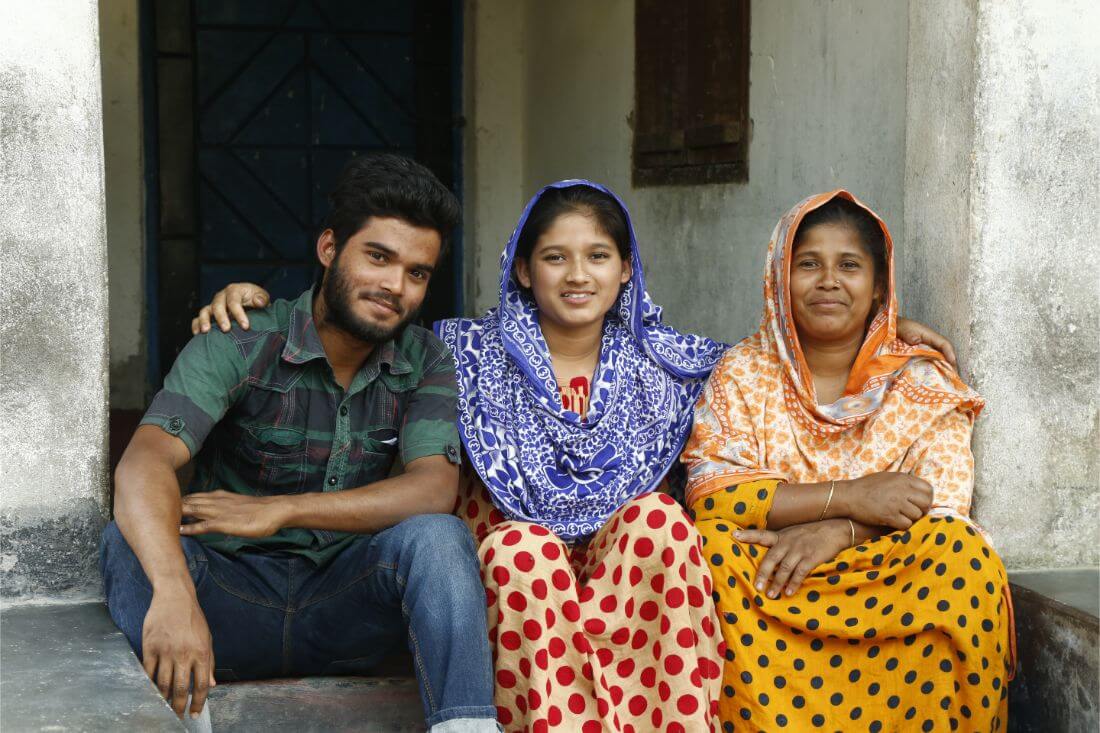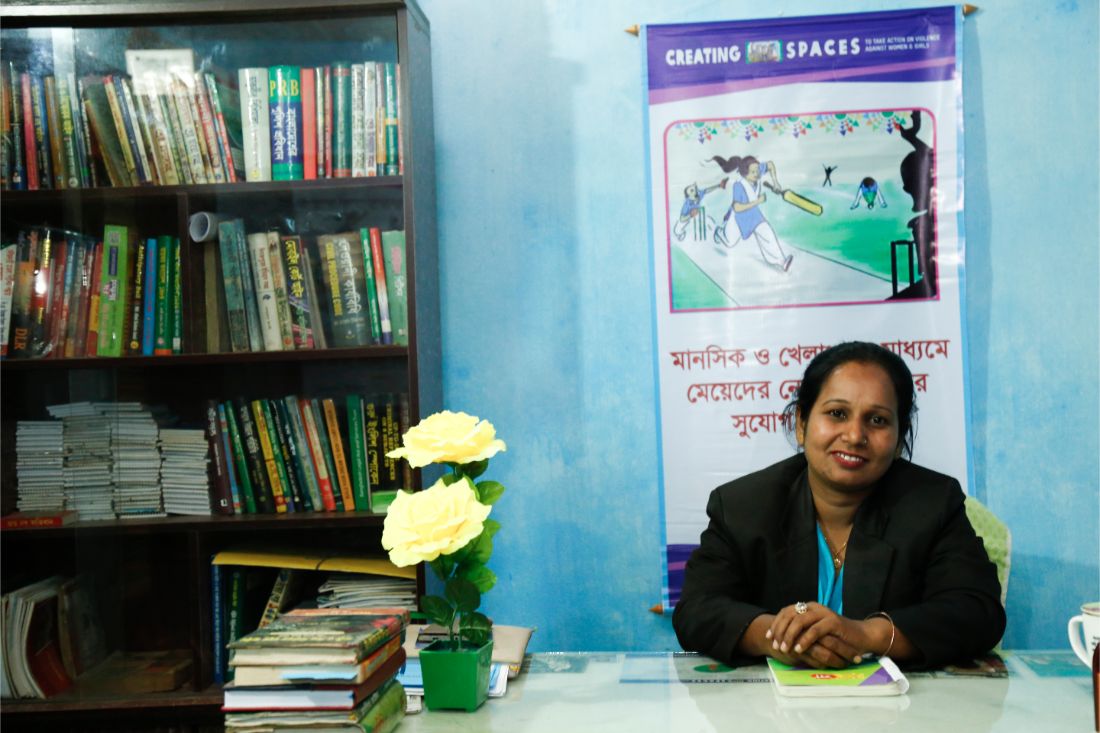Creating space to tackle violence against women and child marriage in Bangladesh
"Who here was married before they were ready?" Every single woman raises her hand. The women tell us what it was like to be married at a young age, and how it not only affected their lives but the lives of their daughters and granddaughters as well.
This may sound like an odd question to ask a group of women. But in Bangladesh, where 52 per cent of women marry under the age of 18, it speaks to how serious the issue of child, early and forced marriage is in developing countries.
The cycle of child brides in Bangladesh
In the small northern Bangladesh town of Dinajpur, we meet an 18-year-old woman named Rubina. Her young daughter Jim is there, along with her mother, Lovely, and brother Faridul.
As Rubina tells us her story, they all wipe away tears. I do too, imagining what my life would have been like if I had been married at the age of 12.
Rubina was married off at a young age because of a deal her grandfather made before she was born. The understanding was that she would marry his friend's son. That deal resulted in a life where opportunities like school, friends and family were taken from her.

Faridul, Rubina and their mother Lovely sitting in front of their home in Fazilpur, Dinajpur, Bangladesh | Photo: Abir Abdullah / Oxfam
Rubina's mother, who looks to be my age – in her late thirties – could do nothing to help her daughter's situation.
She also married at a young age because she didn't know any other way and had to respect the wishes of the family patriarch.
Faridul, who cried quietly beside his sister as she spoke, felt powerless and unable to help. He told us later that even though he could see Rubina didn't want to get married, he was too young to stop it.
The cost of early marriage
Being married early comes with so many costs and the consequences are immense. Girls are usually pulled out of school when they are married – limiting their ability to participate in economic activities, curbing their access to knowledge and information, and restricting their social circles. They also have to deal with the reality of their new lives.
We heard countless stories about girls that were married off too young and weren't mature enough to deal with the huge responsibility of making and maintaining a family.
In most instances, these girls don't know how to care for themselves, let alone their husbands and their babies. The natural act of giving birth at such a young age, when their bodies aren't ready, has consequences for their health and the health of their children.
While Bangladesh has a law that states that girls must be 18 before they marry, the practice continues. But this is not an issue that is exclusive to Bangladesh. In India, 47 per cent of women between the ages of 20 and 24 years were married under the age of 18. In Nepal, it sits at 37 per cent.
These alarming numbers is one of the reasons Oxfam is running the project called Creating Spaces. The project, funded by Global Affairs Canada, focuses on tackling violence against women and girls and ending child, early or forced marriage. It prioritizes work on prevention, response and research around these important issues in six countries – Bangladesh, India, Indonesia, Nepal, Pakistan and the Philippines.
What does that look like in practice?
Our approach targets local laws and policies and how they are implemented. We work on the ground, in these countries, to facilitate knowledge-sharing between local partners and countries to generate widespread change.
We help individuals and institutions connect, share, learn and adapt approaches to ending violence against women and girls.

Khurshida Parveen Joli (40), advocate, District Judge Court, Dinajpur, Bangladesh. Photo: Abir Abdullah/Oxfam
We couldn't do the work without these local organizations, who are run by some fierce and feisty women that go to battle every day to change the attitudes and behaviours that perpetuate violence against women and girls.

Empowered women: Creating Spaces project coordinator, Shahnaj Parvin (L), CS project officer, Rownak Ara Haque (M) and Pollisree executive director Shamim Ara Begum (R) show their mettle in Rangpur, Bangladesh.
Smalls steps that are leading to change
Back in that small northern Bangladesh town of Dinajpur, where we met Rubina, we can see the project working. Community groups have been formed in Dinajpur that allow women, youth and men the space to talk about the issues that affect them and their families.
For Rubina, because of the information and strength she's gained from her community group, she has managed to convince her in-laws to let her finish school, and is now armed with knowledge about her rights.
Her mother also now knows that it was a mistake to marry Rubina so young, and has vowed that this will not happen to her granddaughter. Rubina's brother Faridul has become an advocate – active in the youth group, re-writing traditional songs to include messages about the harmful impacts of child marriage and reporting to the local authorities when he hears of a marriage of a young girl taking place.
Even Rubina's husband has started attending one of the community groups, which she says has helped him become a better parent to their daughter.
Changing social practices that have been the norm for centuries and are deeply embedded in the culture and mindsets is slow. But because of the discussions taking place with the support of Creating Spaces, women are committed to not letting their young daughters suffer the same fate they did.
As we leave Dinajpur and the courtyard we've been sitting in all afternoon, the nearby school children are let out from their classes. They look at us, curious, and I feel sure that with the women in this community watching over them, these girls' lives will be different from their mothers.
Karoline Kemp is Oxfam Canada's International Program Officer for Creating Spaces.

